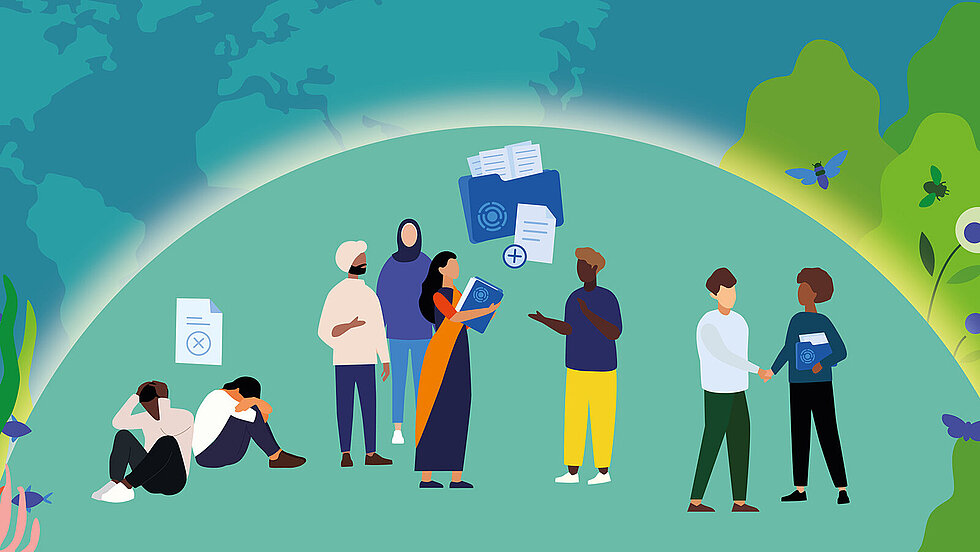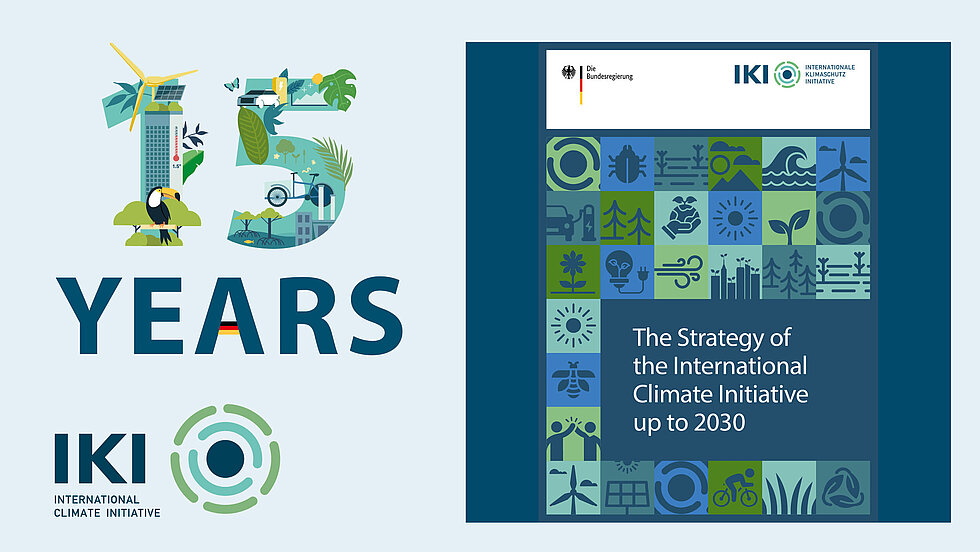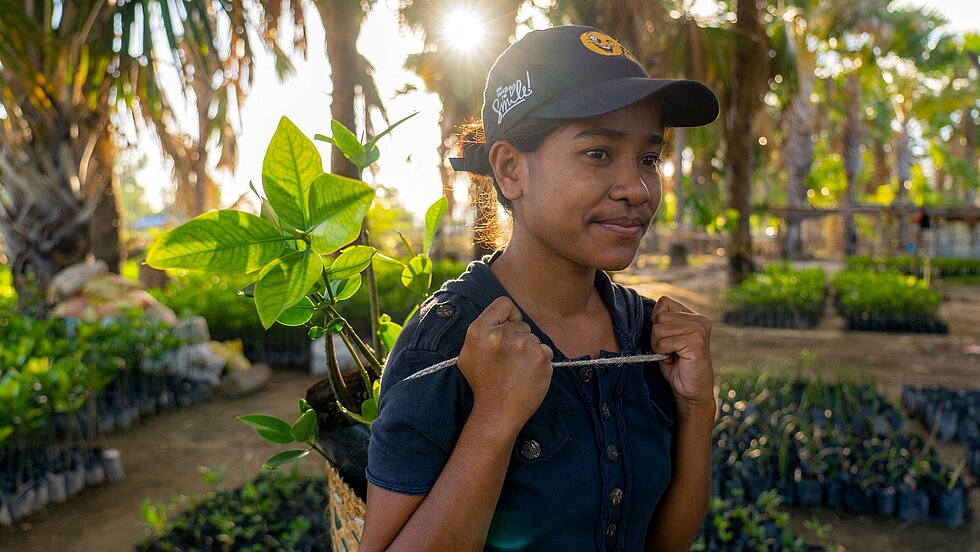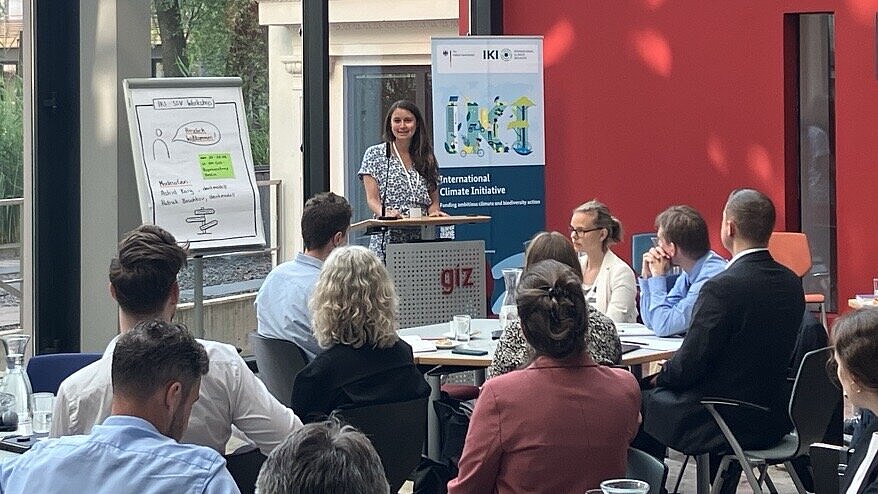About IKI
The International Climate Initiative (IKI) is an important part of the German government international climate finance commitment. Since 2022, the Federal Ministry for Economic Affairs and Climate Action (BMWK) has been the lead ministry for the IKI. The funding program cooperates with its founding ministry, the Federal Ministry for Environment Nature Conservation, Nuclear Safety and Consumer Protection (BMUV), as well as the Federal Foreign Office (AA). Through the IKI, the ministries jointly support approaches in developing and emerging countries to implement and ambitiously develop the Nationally Determined Contributions (NDCs) anchored in the Paris Agreement. This includes measures to adapt to the impacts of climate change and to conserve and rebuild natural carbon sinks, taking into account environmental, economic and social concerns. With regards to biodiversity, the IKI also supports its partner countries in achieving the goals of the Convention on Biological Diversity (CBD).
Know more →
IKI Global In Focus

Independent Complaint Mechanism (IKI ICM)
The mechanism is intended to enable people who suffer (potential) negative social and/or environmental consequences from IKI projects, or who wish to report the improper use of funds, to voice their complaints and seek redress.
Public Relations for Projects
The success of the International Climate Initiative (IKI) is based on the project implementers worldwide who are engaged in protecting the climate and biological diversity. The IKI communications team supports the funded projects by reporting on their communication activities, successes and impacts. Various channels are available for this purpose, such as the IKI website, the IKI Twitter channel or the IKI Brown Bag Lunch events. The IKI communications team is glad to assist, where possible, in all communication related activities of the projects.

The Strategy of the International Climate Initiative up to 2030
Climate change mitigation, biodiversity conservation and adaptation to global climate change are the core concerns of the International Climate Initiative (IKI, from the German Internationale Klimaschutzinitiative). As a central programme of the German Government's international climate and biodiversity funding, the IKI has been instrumental in implementing the United Nations Framework Convention on Climate Change (UNFCCC), in particular the Paris Agreement (PA) and the Convention on Biological Diversity (CBD) since 2008.

IKI Annual Report 2023
2023 was a year of many milestones for the IKI: from the 15th anniversary of the funding programme to the publication of the "IKI Strategy to 2030". Here is an overview of the most important issues of the past year.

IKI Gender Guidelines
Climate change and biodiversity loss are affecting countries, societies and ecosystems worldwide. Among other things, the vulnerability of human populations to their impacts also depends on socio-economic, demographic and societal factors. In addition, these factors also influence the magnitude of emissions produced as well as the usage of and access to natural resources. In particular, gender is an especially important factor in this context.

Youth Engagement in the IKI
Young people are greatly affected by climate change and biodiversity loss and are campaigning worldwide for a just and sustainable future. The age group of 15 to 30-year-olds currently accounts for 1.8 billion people, or 23 per cent of the world's population. 90 per cent of these young people live in middle or low-income countries. Despite this, their voices often go unheard, and their potential remains untapped. Yet their ideas, knowledge, skills, and commitment are essential for tackling today's and tomorrow's global challenges.

IKI Interface Master Workshop 2025 held in June in Berlin
In June 2025, the biennial IKI Interface Workshop brought together project managers from 14 priority countries and representatives from key German ministries to strengthen cooperation on climate action and biodiversity conservation. Aligned with IKI’s 2030 Strategy, the workshop focused on strategic coordination in partner countries, where interface projects implemented by GIZ collaborate closely with national ministries and German embassies. These projects also foster synergies across IKI initiatives within each country. The workshop featured technical exchanges on key themes such as NDC implementation, industrial decarbonization, biodiversity protection, international climate negotiations, and climate finance. It also reinforced inter-project collaboration and alignment with Germany’s climate priorities. Participants returned to their countries equipped with fresh insights and renewed strategies to advance global climate and biodiversity goals.
Copyright © 2025 All rights reserved




